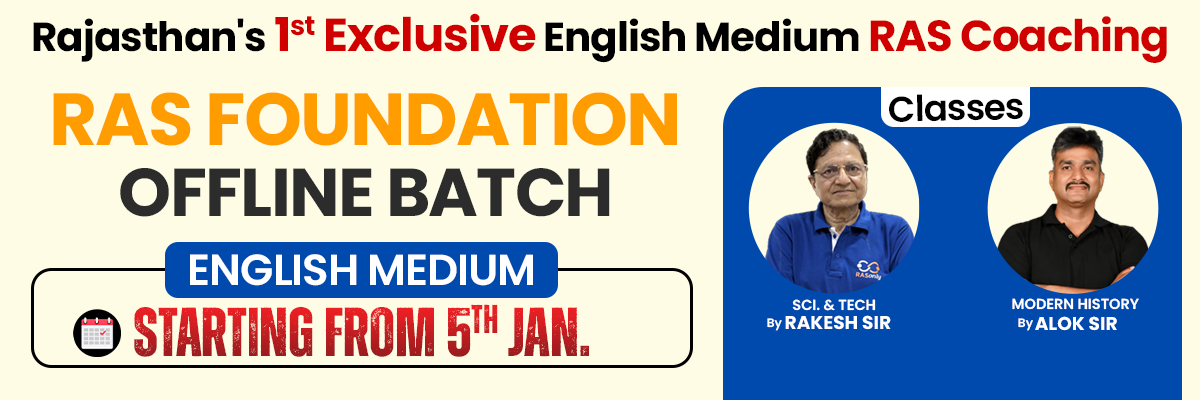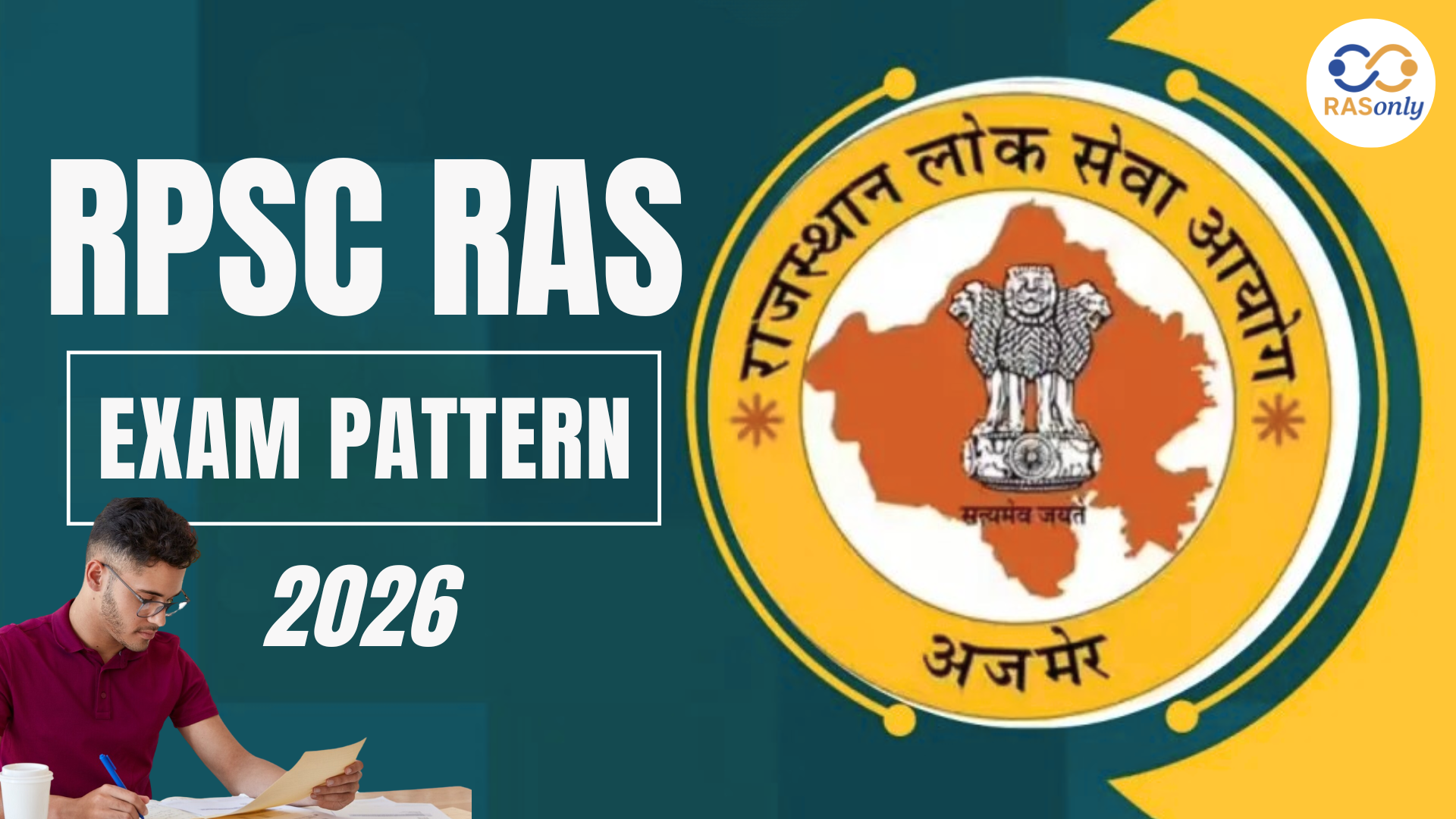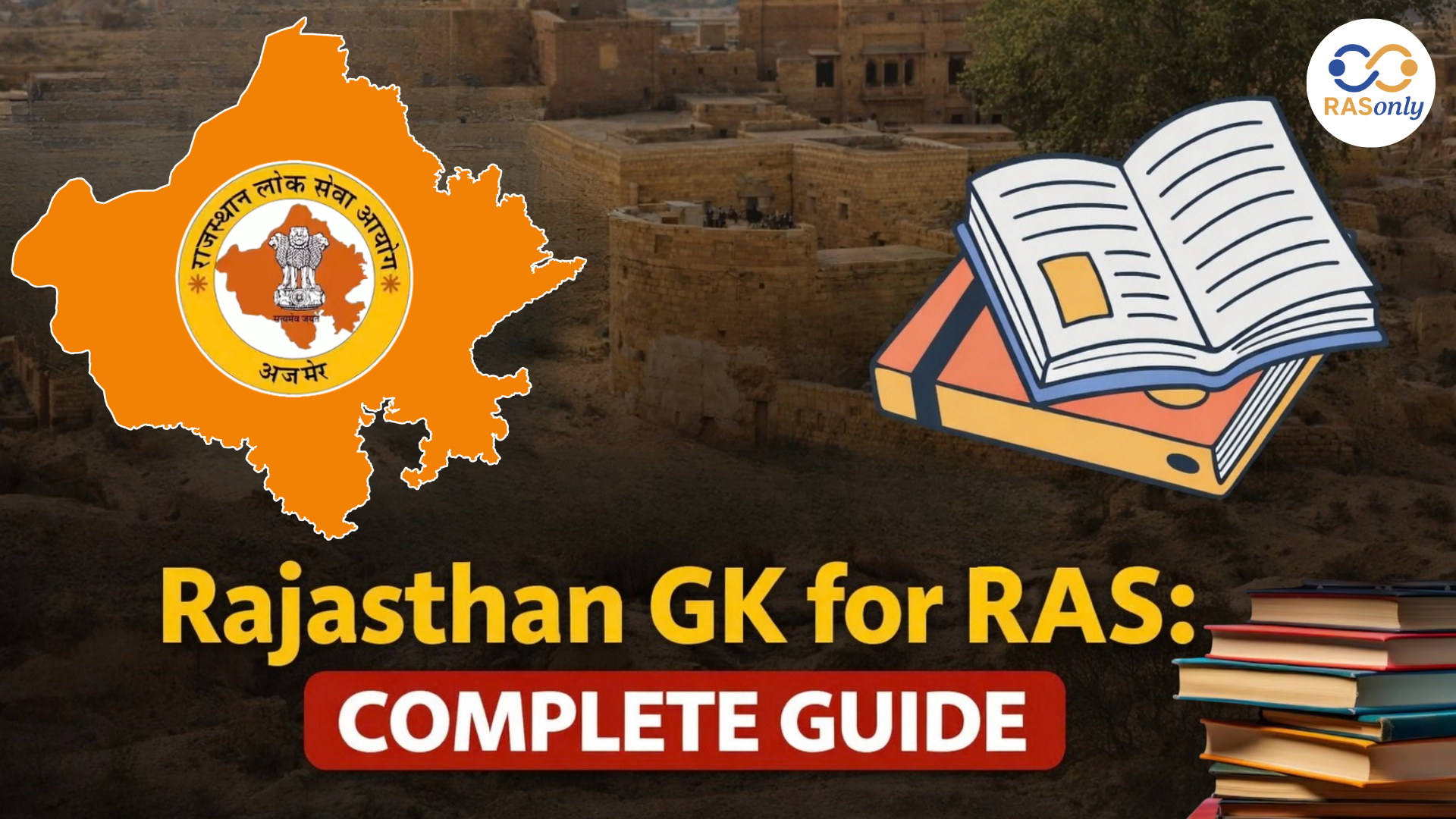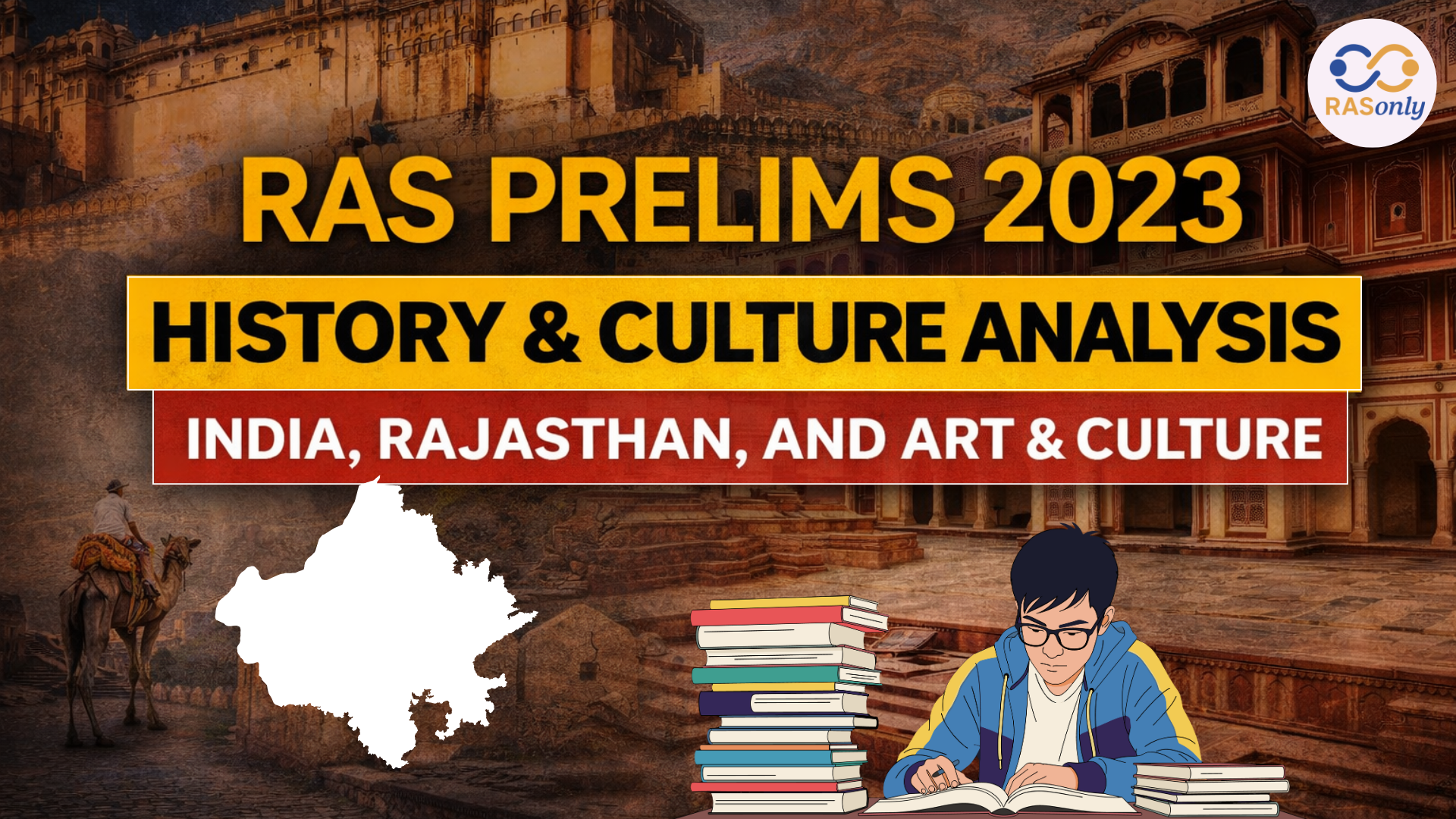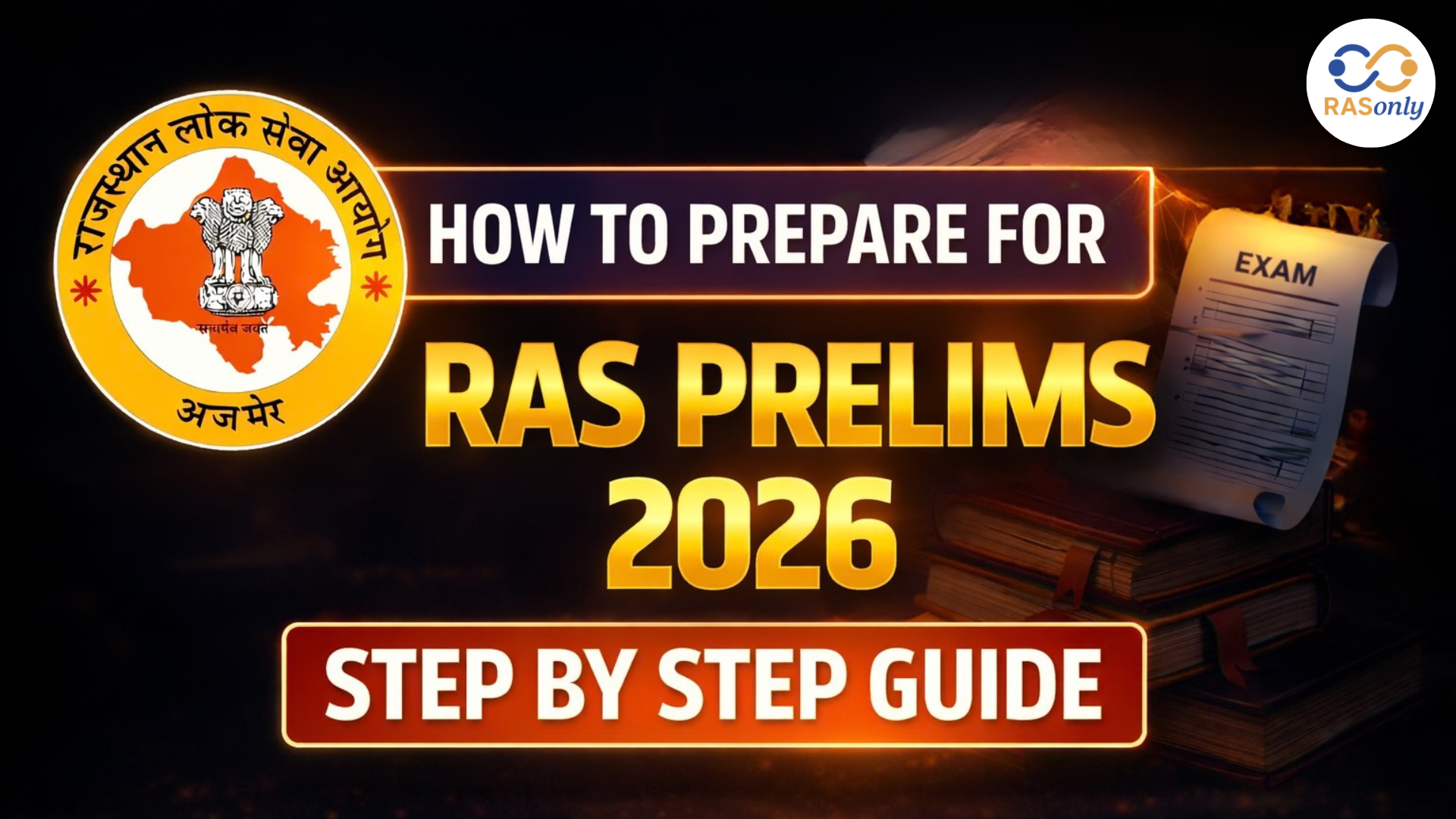RPSC RAS 2026 Subject Wise Exam Pattern for Prelims, Mains & Interview Details
- >
- RAS Preparation Resources
- >
- Indian Musical Instruments
Indian Musical Instruments

Get in Touch with RASonly!

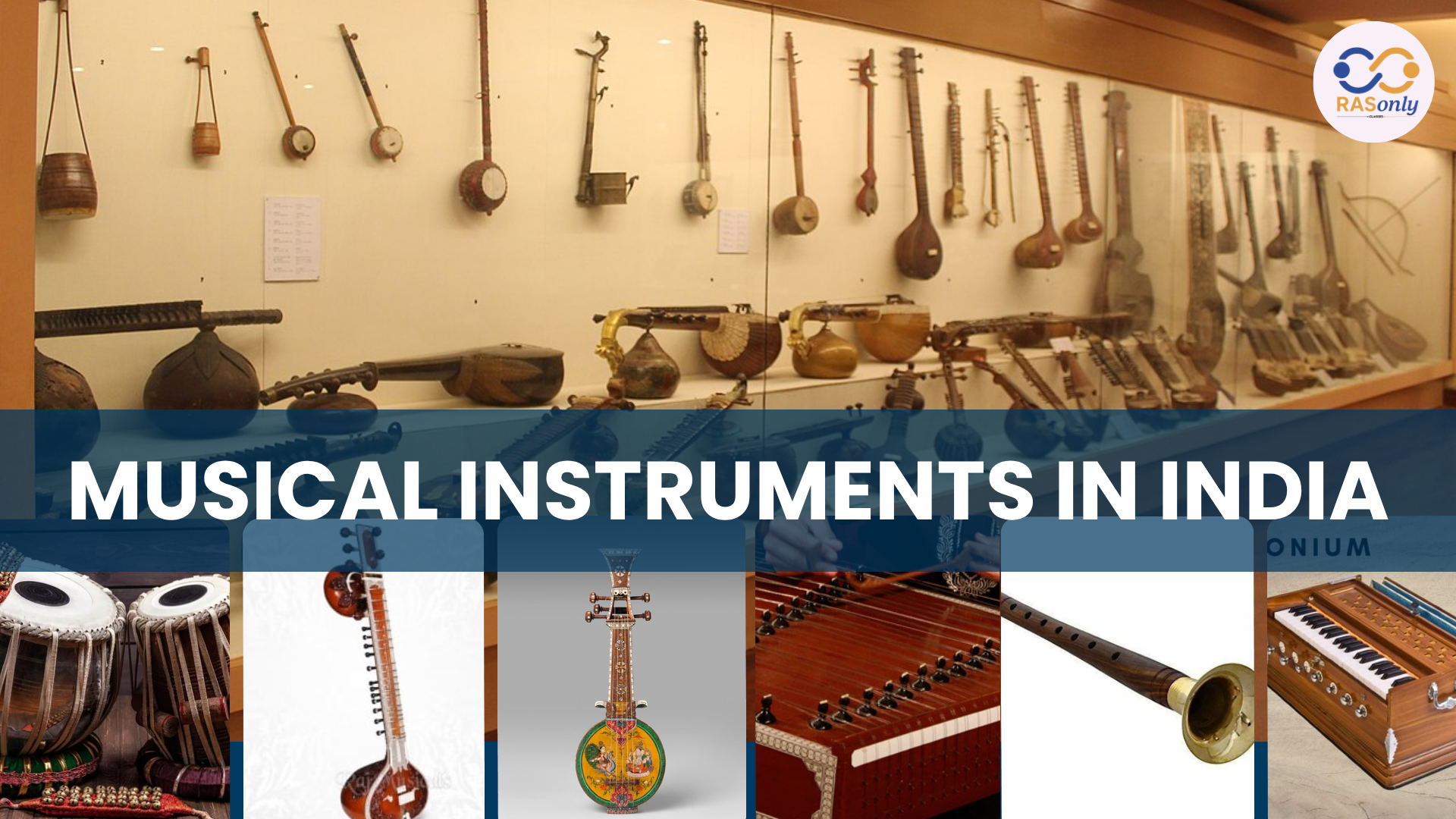
The musical heritage of India is one of the most extensive and ancient globally. The Indian musical instruments are rooted in the prehistoric era. However, there are centuries of cultural development reflected through cave paintings and ancient literature such as Natya Shastra. These are not only music tools, but Regional pride and patronage. There are four general and traditional categories of instruments which include string (Tata), wind (Sushira), percussion (Avanaddha) and solid (Ghana) instruments. They are found in the classical, folk, devotional and contemporary-music traditions.
Key details for RAS Mains
History and Development of musical instruments
A majority of Indian musical instruments derive their origin to deities:
- Veena has a connection with the Saraswati Goddess.
- Mridangam can be associated with Nandi the vahana of Lord shiva.
- Flute can be associated with Lord Krishna.
- Such associations are the reason why musical instruments are revered and worshipped.
- Indian music prioritizes melodic (raga) and a chain of succession of notes.
- Therefore Western keyed instruments such as piano and clarinet did not become popular in Indian classical music.
Raw Materials on Making Musical Instruments
Chemical materials of different natural and metal-related material are employed:
- The flutes and string instruments are made of wood and bamboo.
- Percussion instruments are made of animal skins (of sheep, calves, and buffaloes).
- Bells, cymbals and brass instruments are made of metals like gold, silver, copper, bronze and iron.
- They have been traditionally made of horsehair, ivory, bones and tooth of elephants.
- The body of instruments, such as tanpura, veena and sitar are made of bottle gourd (lauki).
Types of Musical Instruments in India
|
Type (Category) |
Meaning |
Sound Produced By |
Examples |
|
Tata Vadya |
Chordophones (Stringed) |
Vibration of strings (plucked/bowed) |
Sitar, Veena, Sarod, Violin, Tanpura, Santoor, Ektara |
|
Sushira Vadya |
Aerophones (Wind) |
Blowing air through a hollow tube |
Flute, Shehnai, Nadaswaram, Algoza, Mukhavina, Harmonium |
|
Avanaddha Vadya |
Membranophones (Percussion) |
Striking a stretched membrane (skin) |
Tabla, Mridangam, Dholak, Pakhawaj, Ghatam, Tabla Tarang |
|
Ghana Vadya |
Idiophones (Solid instruments) |
Striking solid material (no strings/membrane) |
Manjira, Ghungroo, Khartal, Kanjira, Chimta, Thali |
Classification of Indian Musical Instruments
1. Tata Vadya (Chordophones - Stringed Instruments)
- Sitar-Observational north Indian instrument with sympathetic strings and long necks.
- Veena- South Indian traditional instrument; there are Saraswati veena and Rudra veena.
- Sarod -It is a freeless instrument and has a very deep and resonant tone.
- Tanpura- acts as a second instrument by adding drones to classical music.
- Violin a Western instrument that is very common in Carnatic music.
- Santoor: This is the instrument, a 100 string instrument, originated and used in Jammu and Kashmir.
- Sarangi - A stringed instrument which produces heart moving sounds.
- One string - Ektara folk instrument: popular in Bengal.
Sushira Vadya (Aerophones - Wind Instruments)
- Flute (Bansuri) is a bamboo instrument which is played in both Hindustani and Carnatic music.
- Shehnai shehnai is played at the time of weddings and rituals; it has an auspicious sound.
- Nadaswaram - loud, sonorous, reed instrument of use in South Indian temples.
- Algoza- The doubler flute is played in Punjabi and Rajasthan folk music.
- Mukhavina- Brass wind instrument of the Yakshagana in Karnataka.
- Harmonium is a reed instrument with keyboard and is utilized in bhajans and ghazals.
Avanaddha Vadya (Membranophones - Percussion Instruments)
- Tabla - Twin drums of Hindustani classical music.
- Mridangam A double headed drum that is an essential part of Carnatic concerts.
- Dholak- folk and devotional drum, common throughout India.
- Pakhawaj Pakhawaj is an instrument employed in dhrupad; It is an ancestor of the tabla.
- Ghatam- a clay pot instrument of South India.
- Tabla Tarang- Set of tablas of varying notes to provide melody.
Ghana Vadya (Solid Instruments - Idiophones)
- Manjira- Little hand cymbals played in religious music.
- Ghungroo- The ankle bells, which are used by classical dancers.
- Khartal- Clapper that is wooden and used in folk and devotional performances.
- Kanjira- South Indian jingle frame drum.
- Thali -Metal plate sounding to keep the rhythm.
- Chimta - It is a Punjabi folk instrument with jingles.
- Thattukazhi & Elathalam- These are the cymbals adopted in the music in the temples in Kerala.
- Bhapang One-string folk instrument of the region of Rajasthan.
Conclusion
Indian musical instruments are instruments not only making sound: instruments of tradition, even instruments of identity. Both classical and folk bring their fair share in the musical scene defining the spiritual and cultural culture in India. Knowing and retaining these instruments is a way to retain the continuity between ancient music and vibrant music of India and also facilitate cultural integration and creativity of music.
Post Category
- RAS Salary
- Result
- RAS Admit Card
- RAS Job
- RAS Cutoff
- Preparation Tips
- RAS Answer Key
- RAS Exam Analysis
- RAS Syllabus
- RAS Previous Year Papers
- RPSC RAS Exam Pattern
- RAS Interview
- RAS Mains Exam Date
- RAS Vacancy
- RAS Test Series
- RAS Best Books
- RAS Preparation Resources
- RAS Coaching Centre
- History
- Polity
- Geography
- Economics
- Science
- Art and Culture
- RPSC RAS Application Form
- RPSC RAS Notification
RASonly Interview Guidance Program

Mr. Ashok Jain
Ex-Chief Secretary Govt of Rajasthan
- IAS officer of the 1981 batch, Rajasthan cadre.
- Passionate about mentoring the next generation of RAS officers with real-world insights.
- Got retired in Dec 2017 from the post of Chief Secretary of the state of Rajasthan.

Mr. Guru Charan Rai
Ex-ASP / SP in Jaisalmer
- Guru Charan Rai, IPS (Retd), retired as Inspector General of Police (Security), Rajasthan, Jaipur in 2017.
- Served as ASP and SP in Jaisalmer, Nagaur, Sri Ganganagar, Sawai Madhopur, Dausa, Sikar, and Karauli.
- He also held key positions as DIGP and IGP in the Law and Order division.

Mr. Rakesh Verma
Ex-IAS Officer, B.Tech, MBA, and M.A. (Economics)
- IAS officer of the 1981 batch and retired in Chief Secretary Rank.
- Civil servant of high repute and vast experience.
- Has been teaching UPSC CSE subjects for the last six years.
Related Post
Daily Current Affairs for RAS Exam Preparation 2026
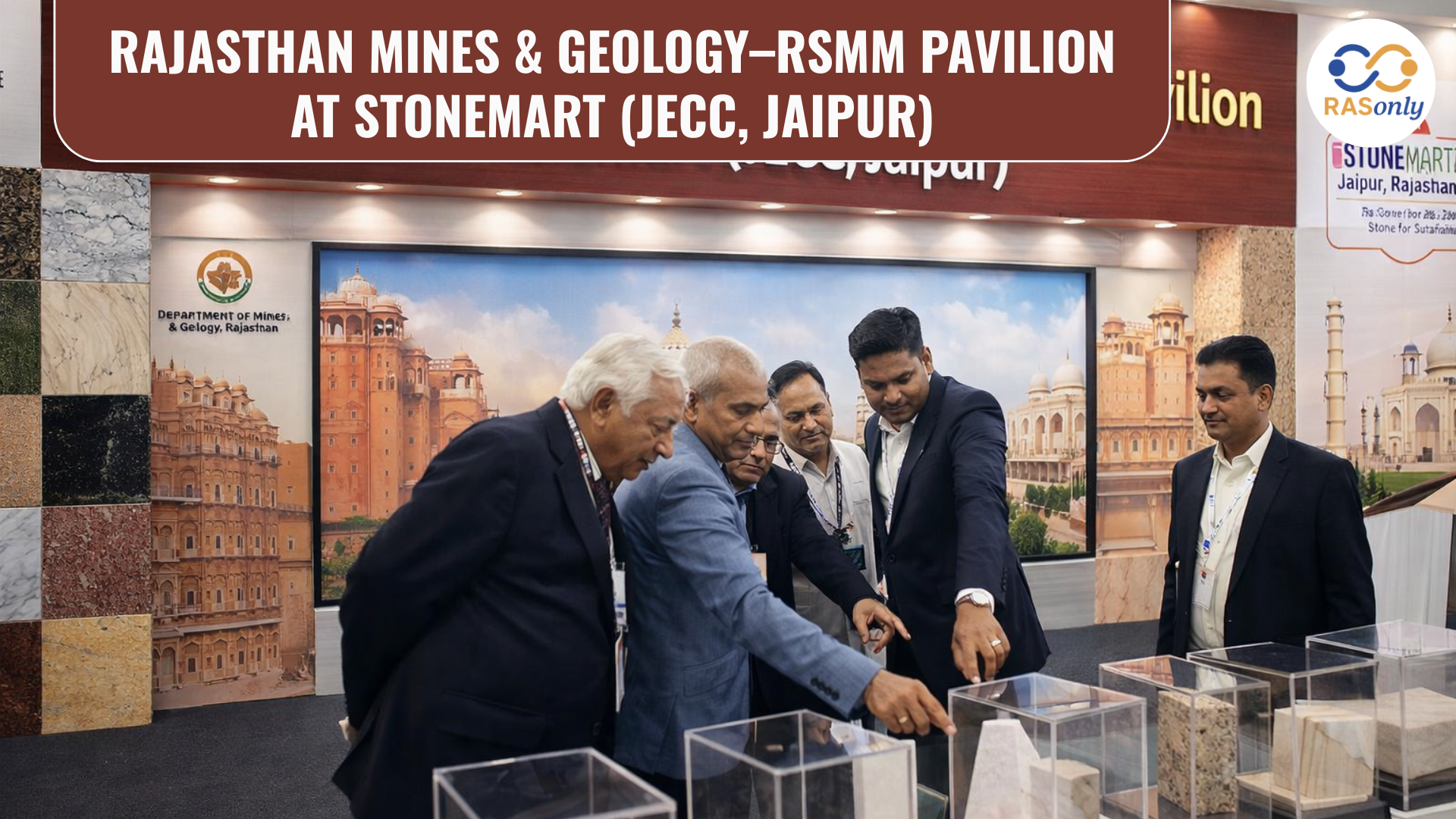
Rajasthan Pavilion Shines at Stone Mart Jaipur 2026
February 07, 2026
Rajasthan Achieves 3,000 MW Under PM-KUSUM Scheme
February 07, 2026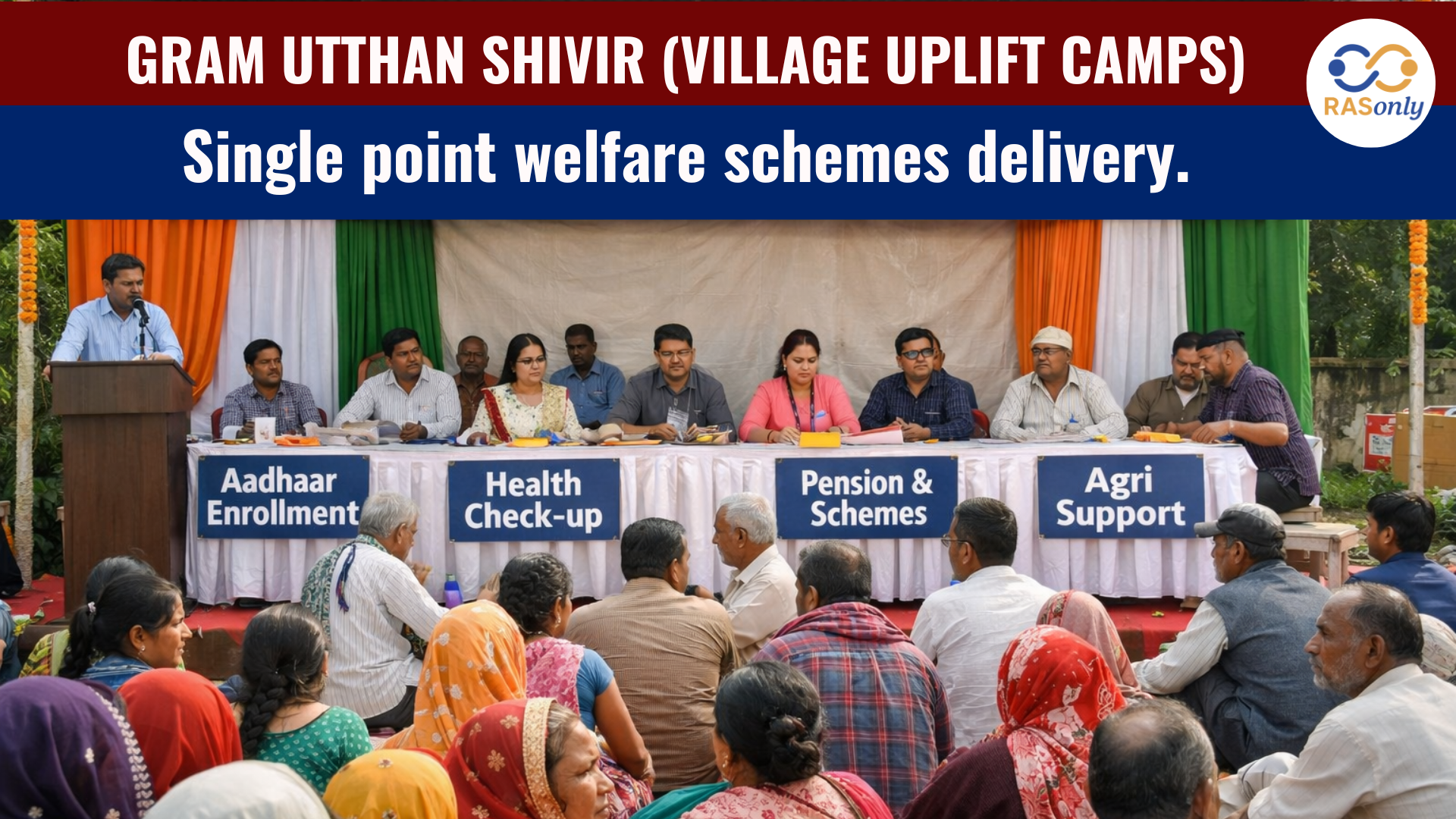
Gram Utthan Shivirs Strengthen Rural Governance in Rajasthan
February 07, 2026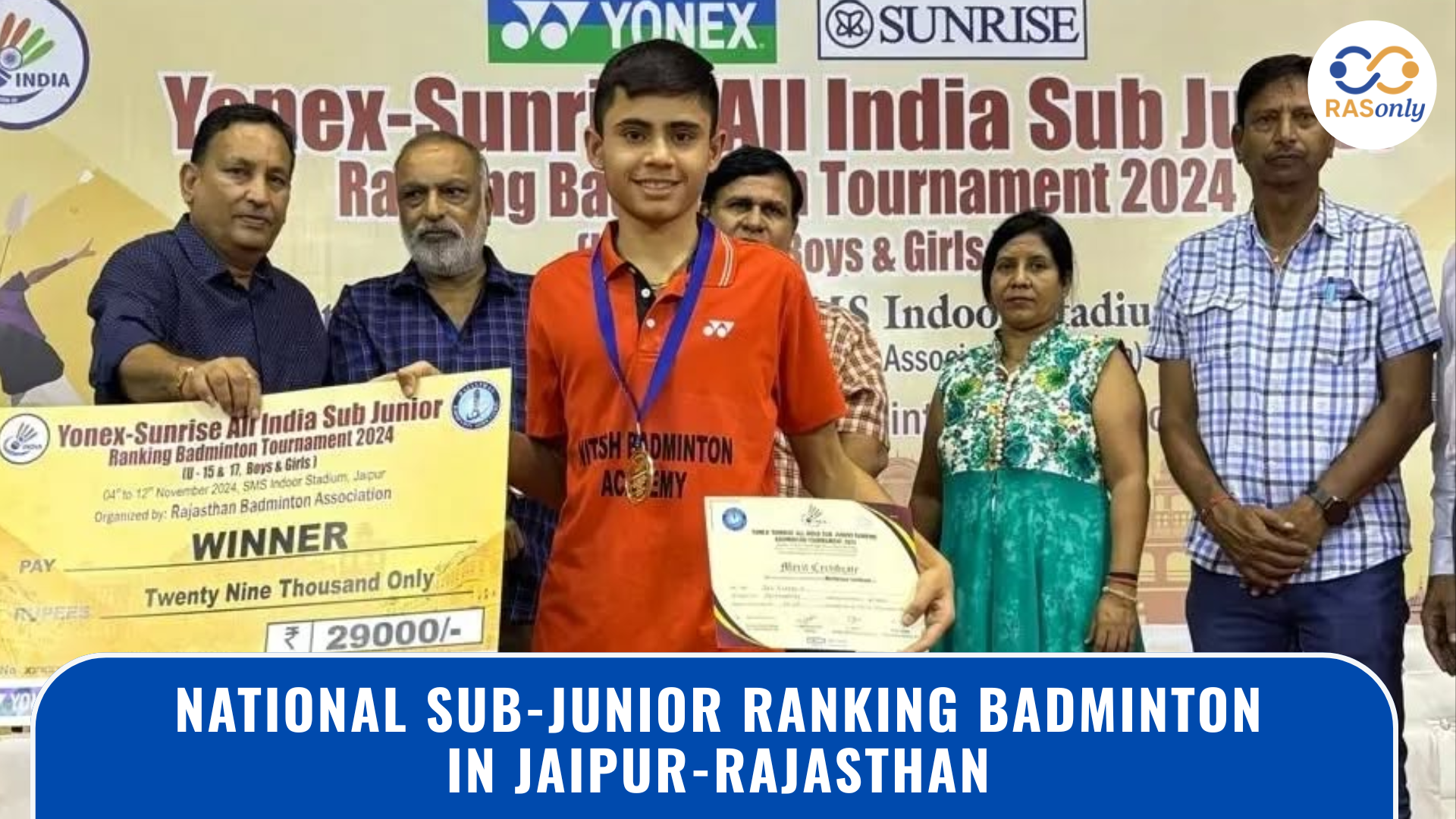
Jaipur Badminton: 72-Minute U-15 Final Creates Record
February 06, 2026👉🏻 Register Today to Join Classes! 👍🏻
- Team RASOnly -
🎯 Benefits of RASOnly Coaching:
- ✅ 1:1 Mentorship with RAS Officers
- ✅ Experienced and Expert Faculty
- ✅ Free Library Access
- ✅ Daily Minimum 4 Hours Must
- ✅ Comprehensive Study Material
- ✅ Regular Tests & Performance Analysis
- ✅ Personalized Guidance & Doubt Solving
- ✅ Online & Offline Class Options
- ✅ Affordable Fees with Quality Education
Key Highlights:
- 👉🏻 3-Day Refund Policy
- 👉🏻 New Batch Starting from 04 August
- 👉🏻 Registration Amount: Only ₹1000




